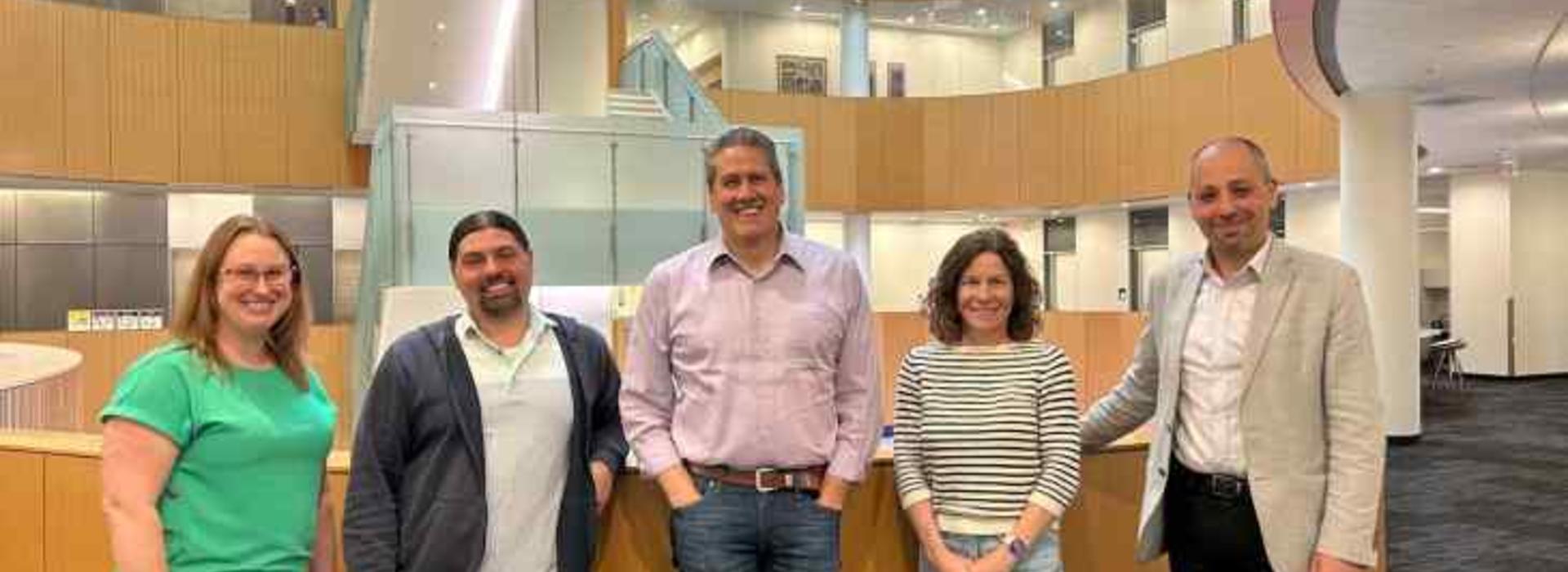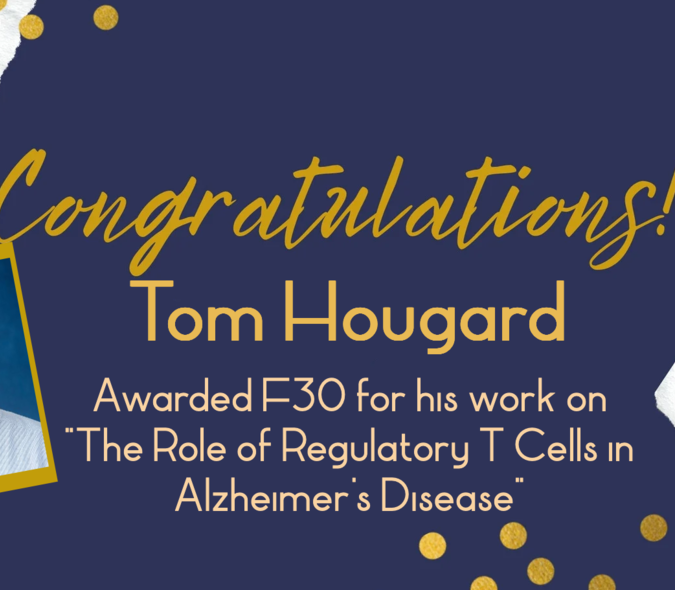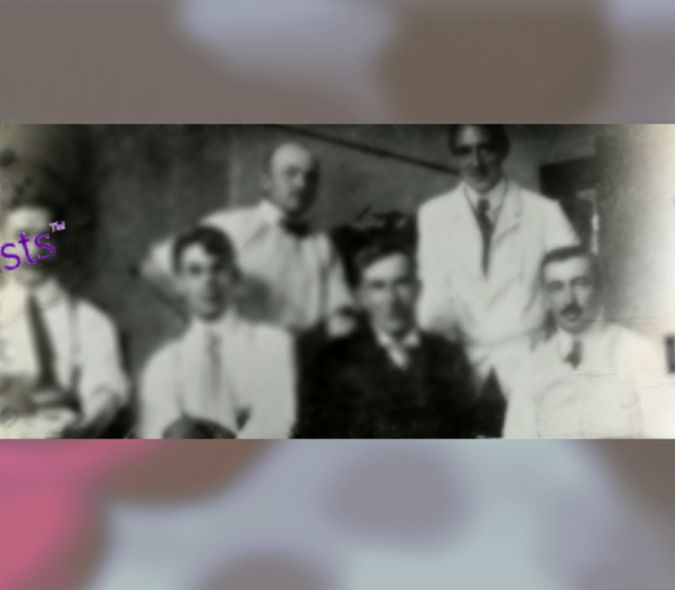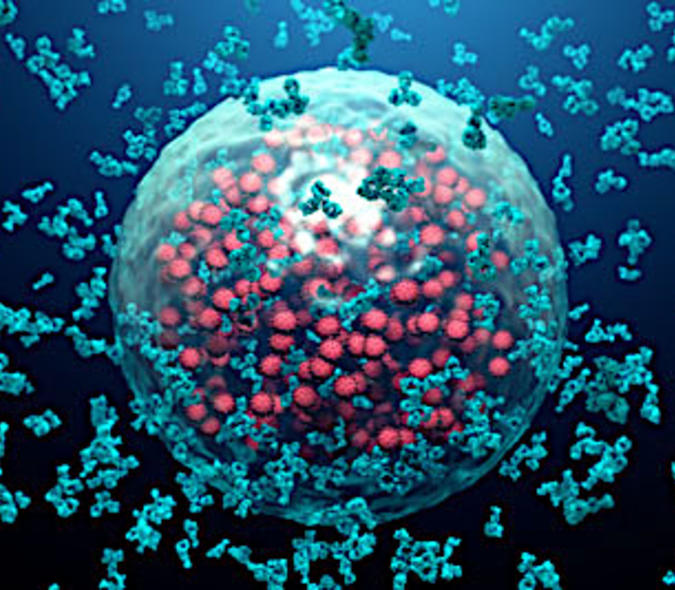
Drs. Ingunn Stromnes, David Largaespada, Branden Moriarity, Laura Rogers, and Saad Kenderian partner to revolutionize individualized cancer treatment
Congratulations to Drs. Ingunn Stromnes, David Largaespada, Branden Moriarity, Laura Rogers, and Saad Kenderian on their recent $1.5 million grant from the Minnesota Partnership for Biotechnology and Medical Genomics to revolutionize individualized cancer treatment.
The new partnership between the Masonic Cancer Center, the University of Minnesota, and the Mayo Clinic Comprehensive Cancer Center will focus on two critical goals: understanding why certain types of immunotherapy fail to produce consistent results and pioneering innovative methods to augment the immune system's ability to create more potent cancer therapies.
This collaboration is particularly significant as it combines both institutions' expertise to tackle immunotherapy challenges. By delving into the reasons behind treatment resistance, these doctors aim to uncover new insights that could lead to breakthroughs in cancer treatment. Their efforts promise to pave the way for more effective strategies that harness the immune system's capabilities to combat cancer more efficiently.
Below is the article written by MCC announcing the partnership:
Cancer is the second leading cause of disease-associated death in the U.S. Although more patients are living longer and higher-quality lives as cancer survivors, the most used cancer treatments can cause serious medical problems. These complications can have an outsized impact on a patient’s quality of life, and many times become a new threat to long-term health and well-being aside from the cancer diagnosis. That’s why it is so important that doctors and scientists keep working to discover new cancer treatments that may present fewer negative impacts on a cancer survivor’s future health and well-being.
In particular, a type of immunotherapy treatment called adoptive T-cell therapy presents a promising chance to use a patient’s own immune system to find and destroy their cancer. Cellular immunotherapy such as chimeric antigen receptor (CAR) T-cell therapy has emerged as a potentially curative treatment in some blood cancers. However, it is currently effective in less than 10 percent of all cancers. Thanks to a special $1.5 million grant from the Minnesota Partnership for Biotechnology and Medical Genomics, a team of doctors at the Masonic Cancer Center, University of Minnesota and Mayo Clinic Comprehensive Cancer Center is working to understand why this type of immunotherapy does not always work and develop new ways to help the immune system make more effective therapies for cancer.
Drs. David Largaespada, Branden Moriarity, Ingunn Stromnes, Laura Rogers, and Saad Kenderian are leading this research on the functional genomics of immunotherapy out of the newly-formed partnership. The doctors all agree that, as a form of treatment for cancer, immunotherapy is an incredibly dynamic method. As a tumor mutates—or changes abnormally—and spreads, the immune system can adapt to face it head-on. Once a tumor is eliminated, the immune system will continue to survey the body for signs of returning cancer.
Adoptive T-cell therapies are one exciting strategy to treat cancer that capitalizes on new gene editing technology. Doctors can use the technology to turn white blood cells—the so-called soldiers within the body that fight against infection and disease—into effective medicines for cancer. These disease-fighting cells in the body can be transformed into a tailored treatment for specific cases, locations and types of cancer, an approach that could dramatically revolutionize the whole field of cancer therapy.
“This Minnesota team is committed to solving these problems by thinking outside the box,” said Dr. David Largaespada with the Masonic Cancer Center, University of Minnesota and U of M Medical School. He adds, “Each member of our group brings important expertise. Together, we aim to discover new and biologically cooperative therapeutic strategies and bring these to patients via clinical trials.” Drs. Largaespada and Moriarity also oversee the Center for Genome Engineering at the University of Minnesota, where they work to advance understanding of biological processes and ways to successfully modify living cells for many applications.
“An entirely new form of revolutionary cancer treatment is being developed now,” says Dr. Laura Rogers with Mayo Clinic Comprehensive Cancer Center. “We imagine a ‘medicine cabinet’ of gene-altered cells that we can use to treat various kinds of cancer. Instead of pursuing what is already known, we are leveraging our collective expertise in functional genomics to discover truly novel therapies for cancer.”
Dr. Saad Kenderian with Mayo Clinic Comprehensive Cancer Center adds: “This project builds on complementary expertise from the teams at Mayo Clinic and the University of Minnesota including gene editing, genetic screenings, translation, and clinical trials between Mayo and UMN.”
While there have been major breakthroughs in this research, there are still challenges researchers face in answering all the questions they have about this type of treatment. For example, these therapies have difficulty efficiently infiltrating solid tumors and maintaining their killing activity once there.
Promising discoveries have already been made, including identification of specific proteins that control T-cell infiltration into solid tumors (Dr. Rogers), prevent T-cell exhaustion (Dr. Kenderian), and preserve killing function (Drs. Stromnes and Largaespada). These targets will be manipulated using cutting-edge cell therapy technologies (Dr. Moriarty) and translated into clinical grade products for testing in cancer patients.
The team will continue to collaborate and meet monthly through 2025, including gathering as a team to present their latest research findings in November at the Society of Immunotherapy of Cancer (SITC) annual meeting. Stay tuned for more details on this transformational area of cancer research and care.



